Randomness by Observership?
Another, even stranger thing is that quantum "events" such as the emission of a photon of light or a radioactive particle are probabilistic, rather than certain — until, that is, the event is observed. Only then does it crystallize into certainty, to the definite exclusion of a host of equiprobable events that could have happened, but didn't.
And it gets weirder. Observations in the present crystallize events that happened in the past, pruning all other possibilities away from the "tree" of the history of the universe seemingly after the fact.
Quantum physicist emeritus John Archibald Wheeler calls this creation of cosmic history "genesis by observership." There is some controversy over whether the observer has to be intelligent — as opposed to some inanimate recording device — but the general idea is that the act of observation, even when it occurs post facto, is absolutely necessary if a plenitude of quantum potentialities is to be turned into crisp, factual history.
I find an echo of this bizarre sort of thinking about observership in Deborah J. Bennett's survey of Randomness. In order to describe it, I'll first have to sneak up on it.
There is a huge problem in specifying exactly what randomness is. We say that certain events such as the flip of a coin are random, and we think we know exactly what we mean by it. But our intuitions of what randomness means quickly break down in the face of certain significant questions.
For example, is the flip of a coin random merely because we don't know all the facts? Is it actually deterministic, based on factors of causation which we simply cannot adequately detect or measure? Or is the outcome of a coin flip radically uncaused, such that no amount of information about causational factors could tell us what the outcome will be?
Scientists and mathematicians are split over how to answer questions like that. Some say the attribution of randomness is either a subjective mental response to our own ignorance of real-world causative factors or a sign of psychological indifference as to what the causative factors may be (see p. 154).
Others claim that randomness truly exists as an objective fact in the world outside the mind. Those who make the latter claim, in that they are not "subjectivists," tend to be "frequentists." Frequentists cite the observable fact that (for example) a coin flipped a large enough number of times will tend to come up heads and tails equally often — i.e., with equal frequency.
This means, frequentists say, that randomness is an objective fact. In turn, this (as I understand it) suggests that the outcome of an individual coin flip is radically uncaused. Accordingly, not all events in the objective world are deterministically caused.
I have to admit that I am personally biased in the direction of the frequentists who assert that randomness is a radical, objective fact about the real world. Put another way, I am biased against the strict determinism which the subjectivist position would seem to entail. The main reason I am thus biased is that I strongly prefer to believe that human beings have free will ... and it is hard to see how they could if all events in the world are deterministically caused.
Be that as it may, the questions I have just discussed are hard to settle to the satisfaction of one and all. So are questions such as this one: is randomness an attribute of whatever generates a sequence of events, or of the sequence itself? As Bennett puts it (p. 165), "Is it the outcome or the process which should determine randomness?"
Take a sequence of coin flips. If the coin is a perfectly "fair" one — a condition that apparently cannot be fully met in the real world — the process of flipping it again and again to generate a string of 1's (for heads) and 0's (for tails) would seem to qualify as random. Such a procedure might well generate, say, 0111010010110001 ... etc.
The sequence of binary numbers looks random. But what if we extended it out to a billion places, and along the way we just happened to generate a string of 1,000 0's in a row. Unlikely, yes. Impossible, no. Yet some would reject this particular outcome as manifestly not random.
It's also possible for a questionable process to generate an apparently random outcome. For instance, using a computer algorithm to expand the decimal represetnation of π outward from the well-known 3.14159 ... generates a sequence of digits that cannot be distinguished from the "truly" random. All the digits from 0 through 9 show up roughly equally often. The decimal expansion never repeats itself, thereby going cyclic. It shows no discernible pattern. Yet many minds balk at calling any sequence "random" that is generated by a deterministic — and, in this case, rather compact — algorithm.
We have prior knowledge of the algorithm that is used in an expansion-of-π random number generator, so the criticism has a basis in known fact. But suppose we were presented with another long sequence of digits that passed the same tests of equal frequency, patternlessness, etc.? How would we know whether it was generated by a deterministic algorithm?
For it has been posited by Kolmogorov and others that, by definition, "a sequence is random if the shortest formula which computes it is extremely long" (see p. 163). By this definition, randomness inheres in a quantitative measure of "information." The sequence in question contains very little information if the formula or computer algorithm which generates it is short. But if the minimum-length generating algorithm is quite lengthy, the resulting sequence is by definition highly complex; it contains a lot of information. At some point, an arbitrary line is crossed into randomness.
Such criteria are actually, Bennett points out (see pp. 164-165), measures of unpredictability. In the Kolmogorov scheme, if we apply "a small set of simple rules" (p. 163) to the candidate sequence of digits and find that the sequence does not conform to any of them, we may declare the sequence random, even though there may be more elaborately complex algorithms among which might be found one that generates the same sequence. Because pinpointing such an algorithm by a process of reverse-engineering is next to impossible, each succeeding digit in the sequence comes as a total surprise.
Taking that outlook a step further are theorists such as G. Spencer Brown (see pp 167ff.). Spencer Brown tends to assume that cases like 1,000 0's appearing in a row in a nominally random sequence are ample justifcation for removing the apparently nonrandom segments from the sequence. More importantly:
He further claims it is neither the sequence nor the process which defines randomness but rather the observer's psychology of disorderliness: we cannot know what is coming based on what we have already seen. Spencer Brown asserts, "Our concept of randomness is merely an attempt to characterize and distinguish the sort of series which bamboozles the most people ... It is thus irrelevant whether a series has been made up by a penny, a calculating machine, a Geiger counter or a practical joker. What matters is the effect on those who see it, not how it was produced. (pp. 167-168)
In other words, some series or sequences of events leave us "bamboozled": uncertain as to how to predict what is coming next. If we have no clue, we as observers perceive "uncertainty" and "disorderliness."
That is, of course, what tends to happen with expansions of π. Then we may be told how the trick was done, and the uncertainty and disorderliness vanish.
Bennett uses as one of her chapter epigraphs this quote from Tony Hillerman's mystery novel Coyote Waits:
From where we stand the rain seems random. If we could stand somewhere else, we would see the order in it.
So it would seem that there is such as thing as randomness by observership. Also, determinism by observership. It all depends on where we stand, and what we know.
Perhaps the "random" mutations that fuel evolution aren't so random, from the standpoint of God.






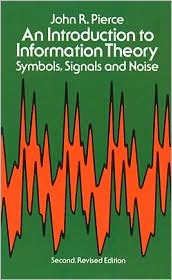

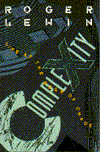

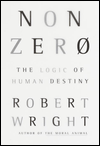

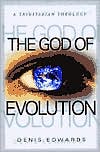

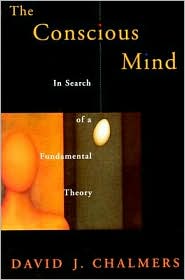
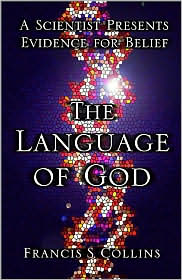


0 Comments:
Post a Comment
<< Home